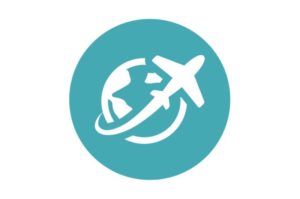The Canada Border Services Agency (CBSA) has shared more details about its ongoing digital transformation. The agency is currently in the process of introducing new screening apps and identification hardware, all of which will allow travelers and citizens to pass through Canadian borders more quickly.

In that regard, the agency explained that COVID-19 provided the impetus for a large-scale technology overhaul that had been in the works for several years. Most notably, the CBSA introduced a new ArriveCan app to make it easier for agents to check the COVID-19 test results and vaccination records of people entering the country, according to new rules laid out by the Public Health Agency of Canada in response to the pandemic.
The CBSA is now hoping to expand the scope of the ArriveCan program to improve its utility moving forward. As it stands, travelers can already use the app to submit their health documents before they get to the border. The CBSA will soon allow air travelers to do the same with their customs declaration forms to further expedite the screening process when they reach their destination. The service is already offered at the Toronto and Vancouver airports, and will soon be rolled out to other airports, cruise ships, and land and rail border crossings.
“ArriveCan has been a game-changer. It’s allowed us to deal with information required in a new way and nimble way,” BCSA Travellers Branch VP Denis Vinette. “By the time I arrive at the airport, all I’ll be doing is confirming my identity and my arrival. CBSA and other border authorities will have decided already whether or not we have an interest in having an interaction with you.”
At the moment, people entering Canada at a land border spend roughly 55 seconds speaking to an agent at customs. Vinette believes that the new technologies can lower that time to an average of 15 seconds.
Airports, meanwhile, will be getting facial recognition technology to further speed up processing times. The technology will be deployed in NEXUS kiosks at airports, and has already been linked to e-gates in Toronto and Winnipeg that open automatically as soon as the traveler’s identity has been verified. Those gates could eventually be integrated with mobile identity technology that allows people to swipe a digital credential stored on their phone.
The CBSA stressed that it has been consulting with Canada’s federal privacy commissioner to make sure that its new systems adhere to privacy and security best practices. The agency ultimately wants to use data analytics to help identify high-risk individuals, and to identify patterns that have been associated with smuggling.
Canada’s border transformation is in keeping with broader international trends. US Customs and Border Protection has already introduced facial recognition at pre-clearance locations in several Canadian airports.
Source: CBC News
(Originally posted on FindBiometrics)

Follow Us